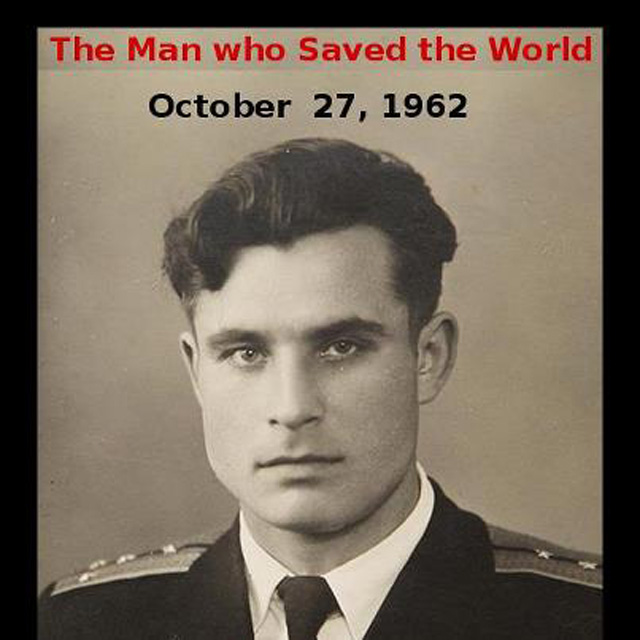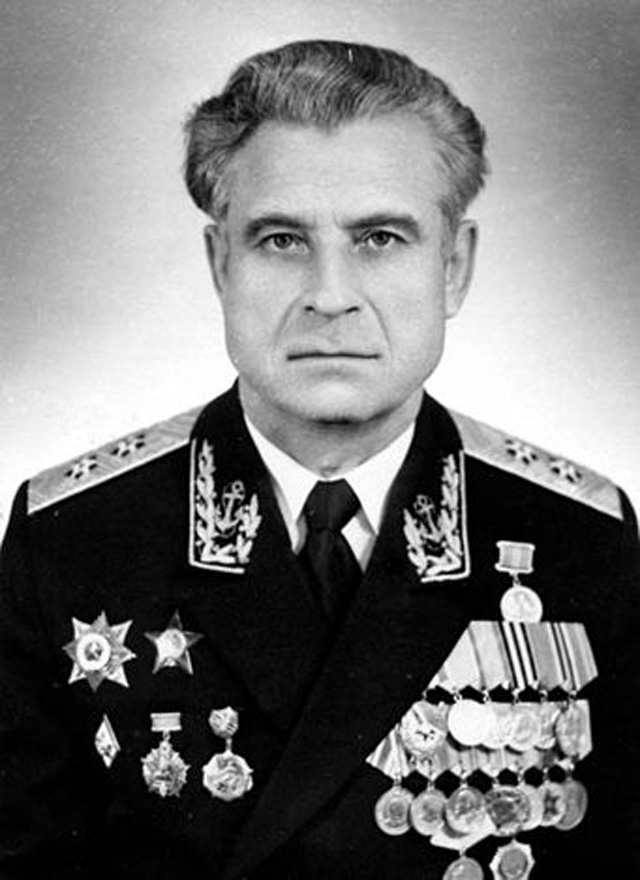The Jewish faith holds that he who saves one man saves the entire world. But Vasilli Arkhipov was one man who, by saving the entire world, saved each and every one of us.
50 years ago today, at the height of the Cuban Missile Crisis, second-in-command Vasilli Arkhipov of the Soviet submarine B-59 refused to agree with his Captain’s order to launch nuclear torpedos against US warships and setting off what might well have been a terminal superpower nuclear war.
The US had been dropping depth charges near the submarine in an attempt to force it to surface, unaware it was carrying nuclear arms. The Soviet officers, who had lost radio contact with Moscow, concluded that World War 3 had begun, and 2 of the officers agreed to ‘blast the warships out of the water’. Arkhipov refused to agree – unanimous consent of 3 officers was required – and thanks to him, we are here to talk about it.
Thomas Blanton (then director of the National Security Archive) said in 2002 that “a guy called Vasili Arkhipov saved the world.”
K19 accident
In July 1961. Arkhipov was appointed deputy commander or executive officer of the new Hotel-class ballistic missile submarine K-19. During its nuclear accident, he backed Captain Nikolai Vladimirovich Zateyev during the potential mutiny. While assisting with engineering work to deal with the overheating reactor, he was exposed to a harmful level of radiation. This incident is depicted in the American film K-19: The Widowmaker.
Involvement in Cuban Missile Crisis
On October 27, 1962, during the Cuban Missile Crisis, a group of eleven United States Navy destroyers and the aircraft carrier USS Randolph located the diesel-powered nuclear-armed Soviet Foxtrot-class submarine B-59 near Cuba. Despite being in international waters the Americans started dropping practice depth charges, explosives intended to force the submarine to come to the surface for identification. There had been no contact from Moscow for a number of days and, although the submarine’s crew had earlier been picking up U.S. civilian radio broadcasts, once B-59 began attempting to hide from its U.S. Navy pursuers, it was too deep to monitor any radio traffic, so those on board did not know whether war had broken out. The captain of the submarine, Valentin Grigorievitch Savitsky, believing that a war might already have started, wanted to launch a nuclear-tipped torpedo.
Three officers on board the submarine – Savitsky, the political officer Ivan Semonovich Maslennikov, and the second-in-command Arkhipov – were authorized to launch the torpedo if agreeing unanimously in favor of doing so. An argument broke out among the three, in which only Arkhipov was against the launch. Although Arkhipov was only second-in-command of submarine B-59, he was actually Commander of the flotilla of submarines including B-4, B-36, and B-130, and of equal rank to Captain Savitsky. According to author Edward Wilson, the reputation Arkhipov gained from his courageous conduct in the previous year’s K19 incident also helped him prevail in the debate. Arkhipov eventually persuaded Savitsky to surface the submarine and await orders from Moscow. This presumably averted the nuclear warfare which could possibly have ensued had the torpedo been fired. The submarine’s batteries had run very low and the air-conditioning had failed, so it was forced to surface amidst its U.S. pursuers and head home. Washington’s message that practice depth charges were being used to signal the submarines to surface never reached B-59, and Moscow claims it has no record of receiving it either.
Aftermath
When discussing the Cuban missile crisis in 2002, Robert McNamara stated that we came “very close” to nuclear war, “closer than we knew at the time.”
In Aleksandr Mozgovoy‘s 2002 book, Kubinskaya Samba Kvarteta Fokstrotov (Cuban Samba of the Foxtrot Quartet), retired Commander Vadim Pavlovich Orlov, a participant in the events, presents them less dramatically, saying that Captain Savitsky had merely lost his temper, but eventually calmed down.
Later life
Arkhipov continued in Soviet Navy service, commanding submarines and later submarine squadrons. He was promoted to rear admiral in 1975 and became head of the Kirov Naval Academy. He was promoted to vice admiral in 1981 and retired in the mid 1980s. He subsequently settled in Zheleznodorozhny, Moscow Oblast, where he died on 19 August 1998.


